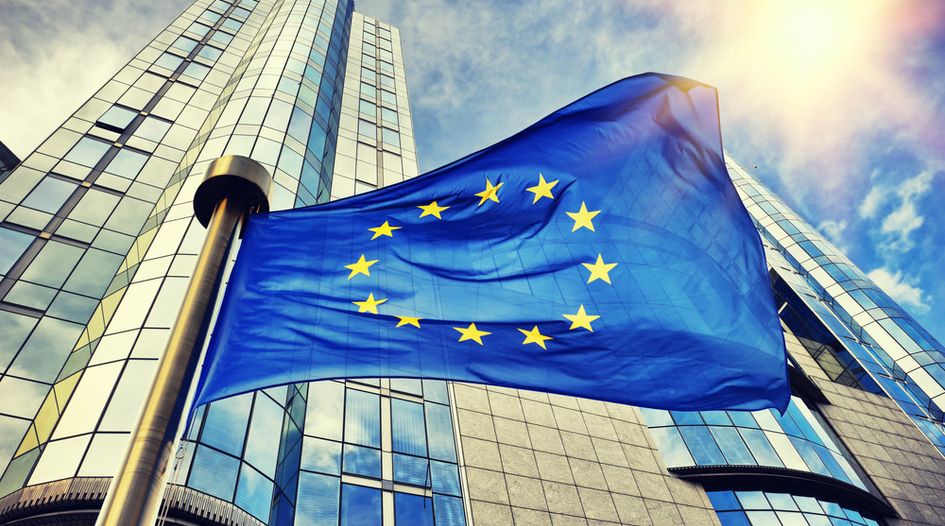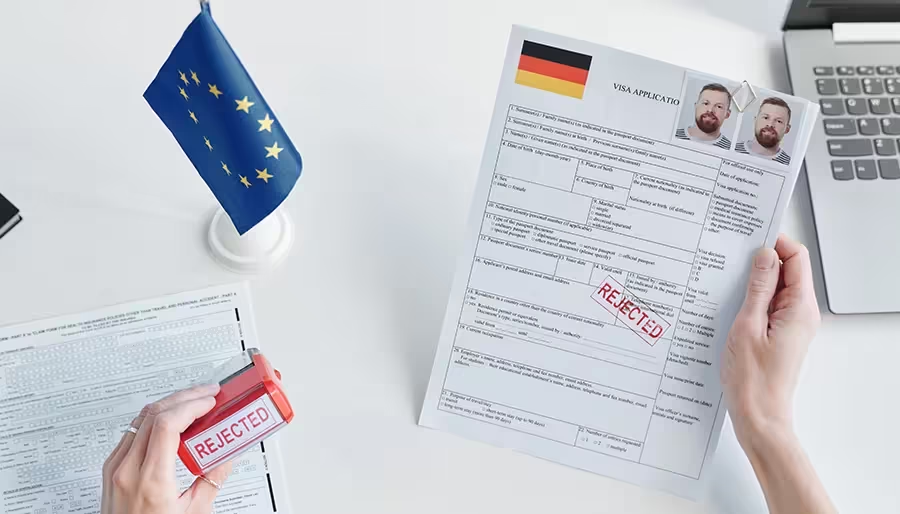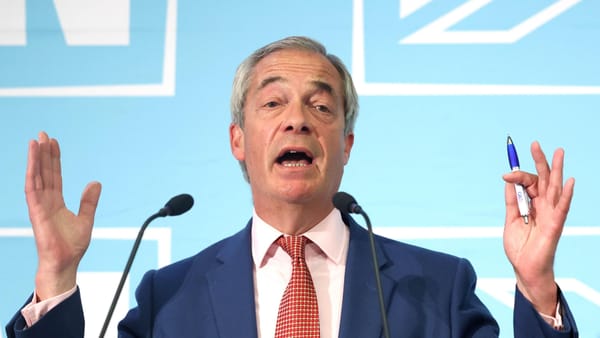In a significant move to address growing concerns about immigration and public safety, nine European countries, spearheaded by Italy and Denmark, have united to urge the European Union (EU) to revise its policies on the deportation of foreign nationals convicted of crimes. This initiative, detailed in a letter obtained by Reuters, reflects mounting frustration among European governments with the current legal framework, particularly the European Court of Human Rights’ (ECHR) interpretation of the European Convention on Human Rights (ECHR). The letter, signed by leaders from Denmark, Italy, Austria, Belgium, the Czech Republic, Estonia, Latvia, Lithuania, and Poland, calls for greater national autonomy in expelling foreign criminals, highlighting a perceived misalignment in how human rights protections are applied. This article delves into the motivations behind this push, the legal and political complexities involved, the broader implications for EU immigration policy, and the societal debates surrounding this issue.
Background: The Catalyst for Change
Rising Frustrations with the European Court of Human Rights
The European Court of Human Rights, established to uphold the principles of the European Convention on Human Rights, has long been a cornerstone of human rights protection in Europe. The Convention, adopted in 1950, guarantees fundamental rights such as the right to life, freedom from torture, and the right to a fair trial. However, its application in deportation cases has become a point of contention for several EU member states. The ECHR has frequently intervened to block deportations, citing potential violations of human rights, such as the risk of torture or inhumane treatment in the deportee’s country of origin.
The letter from the nine European leaders expresses frustration with what they describe as an overly restrictive interpretation of the Convention.
“We have seen cases concerning the expulsion of criminal foreign nationals, where the interpretation of the Convention has resulted in the protection of the wrong people and posed too many limitations on the states’ ability to decide whom to expel from their territories,”the letter states. This sentiment underscores a broader tension between national sovereignty and supranational judicial oversight, a recurring theme in EU politics.
The Role of Italy and Denmark in Leading the Charge
Italy and Denmark have emerged as the primary drivers of this initiative, with their leaders, Prime Minister Giorgia Meloni and Prime Minister Mette Frederiksen, respectively, taking a prominent role. The two leaders met in Rome to discuss the issue, culminating in a joint press conference to amplify their call for reform. Italy, under Meloni’s conservative government, which came to power in 2022, has prioritized stricter immigration policies as a core component of its platform. Meloni’s administration has vowed to curb irregular migration and enhance public safety, reflecting a broader trend of conservative governance in Europe that emphasizes border control and national security.
Denmark, meanwhile, has pursued increasingly stringent immigration policies over the past decade, earning a reputation as one of the EU’s toughest nations on immigration. Under Frederiksen’s leadership, the Danish government has implemented measures such as confiscating assets from asylum seekers to fund their stay and establishing offshore asylum processing centers. These policies have sparked controversy but have also garnered significant domestic support, particularly in response to high-profile cases involving foreign nationals convicted of crimes.
The Legal Framework: The European Convention on Human Rights
Understanding the European Convention on Human Rights
The European Convention on Human Rights, drafted in the aftermath of World War II, is a landmark treaty designed to protect individual rights across member states of the Council of Europe, which includes all 27 EU countries and several non-EU nations. The ECHR, based in Strasbourg, France, oversees the enforcement of the Convention, adjudicating cases where individuals or states believe their rights have been violated. Among its key provisions is Article 3, which prohibits torture and “inhuman or degrading treatment or punishment.” This article has been frequently invoked in deportation cases, particularly when there is a risk that a deportee could face such treatment in their home country.
The ECHR’s rulings are binding on member states, and failure to comply can lead to legal and political repercussions. However, the court’s decisions have often clashed with national governments’ desires to deport individuals deemed a threat to public safety. For example, cases involving foreign nationals convicted of serious crimes, such as terrorism or violent offenses, have been blocked by the ECHR on the grounds that deportation could expose the individual to human rights abuses in their country of origin.
Case Studies: When Human Rights and Public Safety Collide
Several high-profile cases illustrate the tension between human rights protections and national security concerns. In the United Kingdom, which, despite leaving the EU, remains a member of the Council of Europe and is subject to the ECHR, the case of Abu Qatada, a Jordanian cleric accused of terrorism-related activities, became a flashpoint. The ECHR blocked his deportation to Jordan for years, citing the risk of torture and unfair trial. This decision sparked widespread debate about the balance between protecting individual rights and ensuring public safety.
Similarly, in Sweden, a 2019 case involving the deportation of a convicted criminal to Afghanistan was halted by the ECHR due to concerns about the individual’s safety in a conflict-ridden country. These cases highlight the complexity of deportation decisions, where governments must weigh the rights of the individual against the safety of their citizens.
The Political Context: A Surge in Anti-Immigration Sentiment
The Rise of Conservative Governments in Europe
The push to reform EU deportation policies comes against the backdrop of a broader shift toward conservative governance in several European countries. Italy’s Giorgia Meloni, leader of the Brothers of Italy party, campaigned on a platform of reducing immigration and strengthening national security. Her government’s focus on cracking down on irregular migration has resonated with voters concerned about crime rates and cultural integration.
In Denmark, the Social Democratic government under Mette Frederiksen has adopted a hardline stance on immigration, a departure from the traditionally liberal policies associated with social democratic parties. This shift reflects a broader trend across Europe, where even center-left governments are responding to public concerns about immigration by adopting stricter policies.
Public Opinion and Crime Statistics
Public opinion in many European countries has increasingly linked immigration with crime, particularly in the wake of high-profile incidents involving foreign nationals. While comprehensive data on crime rates among immigrants is complex and varies by country, certain statistics have fueled the debate. For example, a 2018 study in Germany found that asylum seekers were overrepresented in certain types of crime, such as violent offenses, though the overall crime rate among immigrants was comparable to that of native-born citizens when adjusted for socioeconomic factors.
In Denmark, a 2020 report by the Danish Ministry of Justice indicated that non-Western immigrants were disproportionately represented in prison populations relative to their share of the population. Such statistics, while often contested for their methodology, have bolstered calls for stricter deportation policies. Critics argue that these figures are misleading without context, as they often fail to account for systemic factors such as poverty, discrimination, and lack of integration opportunities.
The Proposal: What the Nine Countries Are Asking For
Key Points of the Letter
The letter signed by the leaders of Denmark, Italy, Austria, Belgium, the Czech Republic, Estonia, Latvia, Lithuania, and Poland outlines several key demands. First, it calls for a review of how the European Convention on Human Rights is interpreted by the ECHR, particularly in cases involving the deportation of foreign criminals. The leaders argue that the current interpretation unduly restricts member states’ ability to protect their citizens by prioritizing the rights of convicted criminals over public safety.
Second, the letter advocates for greater national autonomy in deportation decisions.
“Member states should have more room nationally to decide on when to expel criminal foreign nationals,”it states. This proposal would effectively reduce the ECHR’s authority to intervene in deportation cases, giving governments more discretion to act swiftly in removing individuals deemed a threat.
Potential Reforms to the EU Framework
Implementing the changes proposed in the letter would require significant reforms to the EU’s legal and political framework. One approach could involve amending the European Convention on Human Rights itself, though this would be a complex and lengthy process, requiring consensus among the 46 member states of the Council of Europe. Alternatively, the EU could develop new guidelines or directives that clarify the balance between human rights protections and national security, potentially bypassing the need for changes to the Convention.
Another possibility is the creation of a tiered deportation system, where the severity of the crime and the risk to public safety are given greater weight in ECHR rulings. For example, individuals convicted of serious crimes such as terrorism, murder, or sexual assault could face expedited deportation processes with fewer legal barriers.
Implications for the EU and Beyond
Impact on EU Unity
The push for deportation reform highlights divisions within the EU on immigration policy. While the nine signatory countries share a common goal, other member states, particularly those with more liberal immigration policies, may resist changes that could undermine human rights protections. Countries like Sweden and Germany, which have historically been more welcoming to migrants, may view the proposal as a step backward in the EU’s commitment to human rights.
The debate also raises questions about the EU’s relationship with the Council of Europe and the ECHR. Any attempt to limit the court’s authority could strain this relationship, potentially leading to legal challenges or diplomatic tensions. Moreover, the proposal could embolden populist and far-right movements across Europe, which have long criticized the ECHR for its perceived overreach.
Human Rights Concerns
Human rights organizations have already voiced concerns about the implications of the proposed reforms. Amnesty International, in a 2023 statement, warned that weakening the ECHR’s authority could set a dangerous precedent, eroding protections for vulnerable populations, including refugees and asylum seekers. “The right to be free from torture and inhumane treatment is non-negotiable,” said an Amnesty spokesperson. “Any attempt to prioritize deportation over human rights risks undermining the very principles that Europe was built upon.”
Critics also argue that the focus on deporting foreign criminals overlooks the root causes of crime, such as social exclusion, poverty, and lack of integration. Rather than reforming deportation policies, they advocate for greater investment in integration programs, education, and economic opportunities for immigrants.
Hidden Truths and Broader Context
The Role of Media and Public Perception
The media plays a significant role in shaping public perceptions of immigration and crime. Sensationalized headlines about crimes committed by foreign nationals often amplify public fears, creating pressure on governments to adopt tougher policies. In Denmark, for example, media coverage of gang-related violence involving immigrants has fueled calls for stricter deportation measures. Similarly, in Italy, Meloni’s government has capitalized on public concerns about migration to push its conservative agenda.
However, research suggests that the link between immigration and crime is often overstated. A 2021 study by the University of Oxford found that immigration does not significantly increase crime rates in most European countries when controlling for socioeconomic factors. This discrepancy between public perception and empirical evidence highlights the need for a more nuanced debate on the issue.
The Global Context: Deportation Policies Worldwide
The debate over deportation in Europe mirrors similar discussions in other parts of the world. In the United States, for example, immigration enforcement has been a contentious issue, with policies fluctuating between administrations. The Trump administration’s aggressive deportation policies, which prioritized the removal of undocumented immigrants, including those with criminal records, drew both praise and criticism. In contrast, the Biden administration has faced challenges in balancing enforcement with humanitarian concerns.
In Australia, strict immigration policies, including offshore detention centers, have been criticized by human rights groups but have also been credited with reducing irregular migration. These global examples provide context for the European debate, illustrating the complex interplay between security, human rights, and public opinion.
Conclusion: A Balancing Act
The call by nine European countries to reform EU deportation policies reflects a broader struggle to balance national security, public safety, and human rights. While the frustrations expressed in the letter are rooted in genuine concerns about crime and immigration, the proposed changes raise complex legal, political, and ethical questions. The outcome of this initiative will likely shape the future of EU immigration policy, testing the bloc’s ability to reconcile competing priorities in an increasingly polarized political landscape.
As Italy and Denmark lead the charge, the EU faces a critical moment in defining its approach to immigration and human rights. Whether the proposed reforms will strengthen national sovereignty or undermine the principles of the European Convention on Human Rights remains to be seen. What is clear, however, is that this debate will continue to resonate across Europe, influencing public discourse, policy decisions, and the lives of countless individuals.



















0 Comments